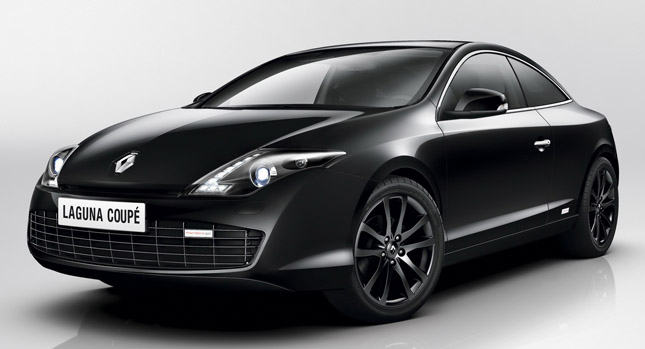Something is rotten in the state of Renault: its sales in the UK market. The fall of the pound against the Euro by 16 percent since the end of 2008, which minimized profitability of companies based in euro-denominated countries along with a staggering 29 percent drop in Renault’s sales in the first 11 months of the year, forced the French carmaker to make some hard decisions.
Renault spokesperson Caroline De Gezelle announced today that, from February, the company will stop taking orders for no less than five of its models that are currently sold in Europe’s third largest car market.
The models that will be axed in Britain are the Laguna sedan and coupe, both versions of the Espace and Modus MPVs, the Kangoo and Traffic passenger vans, and the recently launched Twingo-based Wind roadster.
According to Reuters, De Gezelle said, “the decision is the result of the economic crisis. The pound’s weakness against the euro is part of the difficulty we’re facing in the UK.”
The Renault spokeswoman added that company will close almost one-third of its 190 dealerships in the UK, among them some of the biggest metropolitan showrooms that are owned by the French carmaker itself.
Carlos Tavares, the Nissan-Renault Alliance new Chief Operating Officer, has ordered a complete review of the French carmaker’s operations. As it turns out, its UK division has been loss making for quite a while.
As a result, in a couple of months, British buyers that will walk into a Renault dealership will be able to choose only between four models: the Twingo, the Clio, the Megane and the Scenic. Not a pretty picture, is it?
Renault admits that its performance has been poor, but prefers to see its bold move as a way of cleaning up the house for its 2012 offensive.
According to Autocar magazine, the company will start by improving its aftersales package, including four-years/100k mile warranty, four-years/48k mile servicing and four-years roadside assistance.
The second step is the introduction of its range of brand new electric cars: the Fluence EV sedan, the Zoe supermini and the funky Twizy city car.
The third, and probably most crucial, is the launch of the 2012 Clio. It wouldn’t be far from the truth to say that the company’s success is twined with that of its new B-segment contender. Its predecessor fared very poorly this year, selling 21,000 units, 10,000 less than in 2010.
Carlos Ghosn, current CEO of the Renault Nissan Alliance, has managed to turn around the once-ailing Nissan. When he took the reins of the number two Japanese carmaker he started by slashing costs and platforms and introducing halo models like the GT-R R35 and the Leaf EV, and in doing so has become something of a hero in Japan.
Will the French, too, be applauding him in a few years’ time, for saving their country’s second biggest carmaker? Only time will tell.
PHOTO GALLERY














